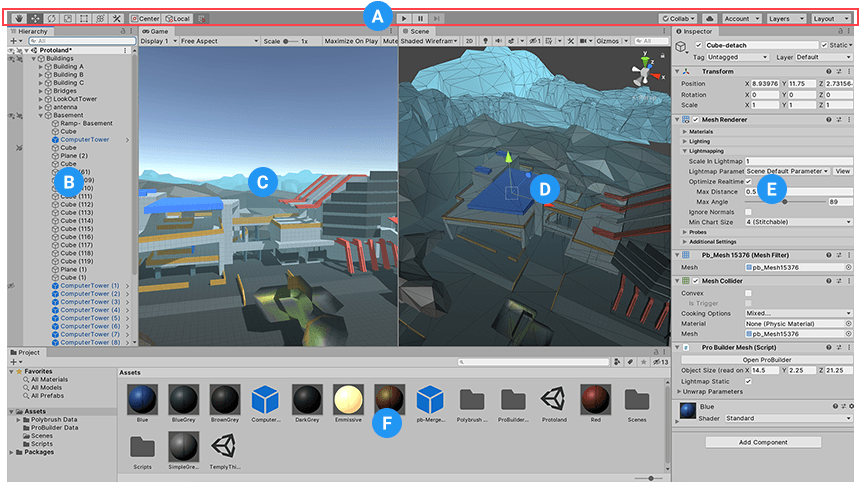Scripting Applications with WebAssembly

The Unity3D engine features a capability where developers can edit the code for their program, hit “play” and observe the changes right away, without a visible compilation step. C# code is compiled and executed immediately inside the Unity editor in a seamless way.
This is a scenario where scripted code runs with full trust within the original application. The desired outcome is to not crash the host, be able to reload new versions of the code over and over, and not really about providing a security boundary.
This capability was built into Unity using .NET Application Domains: a code isolation technology that was originally built in .NET that allowed code to be loaded, executed and discarded after it was no longer needed.
Other developers used Application Domains as a security boundary in conjuction with other security technologies in .NET. But this combination turned out to have some holes, and Application Domains, once popular among .NET developers, fell from grace.
With .NET Core, Application domains are no longer supported, and alternative options for code-reloading have been created (dynamic loading of code can be achieved these days with AssemblyLoadContext).
While Unity was ahead of the industry in terms of code hot reloading, but other folks have used embedded runtimes to provide this sort of capability over the years, Javascript being one of the most popular ones.
Recently, I have been fascinated by WebAssembly for solving this particular scenario and solve it very well (some folks are also using WebAssembly to isolate sensitive code).
WebAssembly was popularized by the Web crowd, and it offers a number of capabilities that neither Javascript, Application Domains or other scripting languages solve very well for scripting applications.
Outside of the Web browser domain, WebAssembly checks all of the boxes in my book:
- Provides great code isolation and memory isolation
- Easily discard unused code and data
- Wide reach: in addition to being available on the Web there are runtimes suitable for almost every scenario: fast JIT compilation, optimizing compilers, static compilation and assorted interpreters. One of my favorites is Wasmer
- Custom operations can be surfaced to WebAssembly to connect the embedded code with the host.
- Many languages can target this runtime. C, C++, C#, F#, Go, Rust and Swift among others.
WebAssembly is low-level enough that it does not come with a garbage collector, which means that it will not pause to garbage collect your code like .NET/Mono or JavaScript would. That depends entirely on the language that you run inside WebAssembly. If you run C, Rust or Swift code, there would be no time taken by a garbage collector, but if you run .NET or Go code there would be.
Going back to the Unity scenario: the fascinating feature for me, is that IDEs/Editors/Tools could leverage WebAssembly to host their favorite language for scripting during the development stage, but for the final build of a product (like Unity, Godot, Rhino3D, Unreal Engine and really any other application that offers scripting capabilities) they could bundle the native code without having to take a WebAssembly dependency.
For the sake of the argument, imagine the Godot game engine. Today Godot has support for GodotScript and .NET. But it could be extended to support for Swift for scripting, and use WebAssembly during development to hot-reload the code, but generate Swift code directly for the final build of a game.
The reason I listed the game engines here is that users of those products are as happy with the garbage collector taking some time to tidy up your heap as they are with a parent calling them to dinner just as they are swarming an enemy base during a 2-hour campaign.
WebAssembly is an incredibly exciting space, and every day it seems like it opens possibilities that we could only dream of before.
Posted on 02 Mar 2020
Blog Search
Archive
- 2024
Apr Jun - 2020
Mar Aug Sep - 2018
Jan Feb Apr May Dec - 2016
Jan Feb Jul Sep - 2014
Jan Apr May Jul Aug Sep Oct Nov Dec - 2012
Feb Mar Apr Aug Sep Oct Nov - 2010
Jan Feb Mar Apr May Jun Jul Aug Sep Oct Nov Dec - 2008
Jan Feb Mar Apr May Jun Jul Aug Sep Oct Nov Dec - 2006
Jan Feb Mar Apr May Jun Jul Aug Sep Oct Nov Dec - 2004
Jan Feb Mar Apr May Jun Jul Aug Sep Oct Nov Dec - 2002
Jan Feb Mar Apr May Jun Jul Aug Sep Oct Dec
- 2022
Apr - 2019
Mar Apr - 2017
Jan Nov Dec - 2015
Jan Jul Aug Sep Oct Dec - 2013
Feb Mar Apr Jun Aug Oct - 2011
Jan Feb Mar Apr May Jun Jul Aug Sep Oct Nov Dec - 2009
Jan Feb Mar Apr May Jun Jul Aug Sep Oct Nov Dec - 2007
Jan Feb Mar Apr May Jun Jul Aug Sep Oct Nov Dec - 2005
Jan Feb Mar Apr May Jun Jul Aug Sep Oct Nov Dec - 2003
Jan Feb Mar Apr Jun Jul Aug Sep Oct Nov Dec - 2001
Apr May Jun Jul Aug Sep Oct Nov Dec